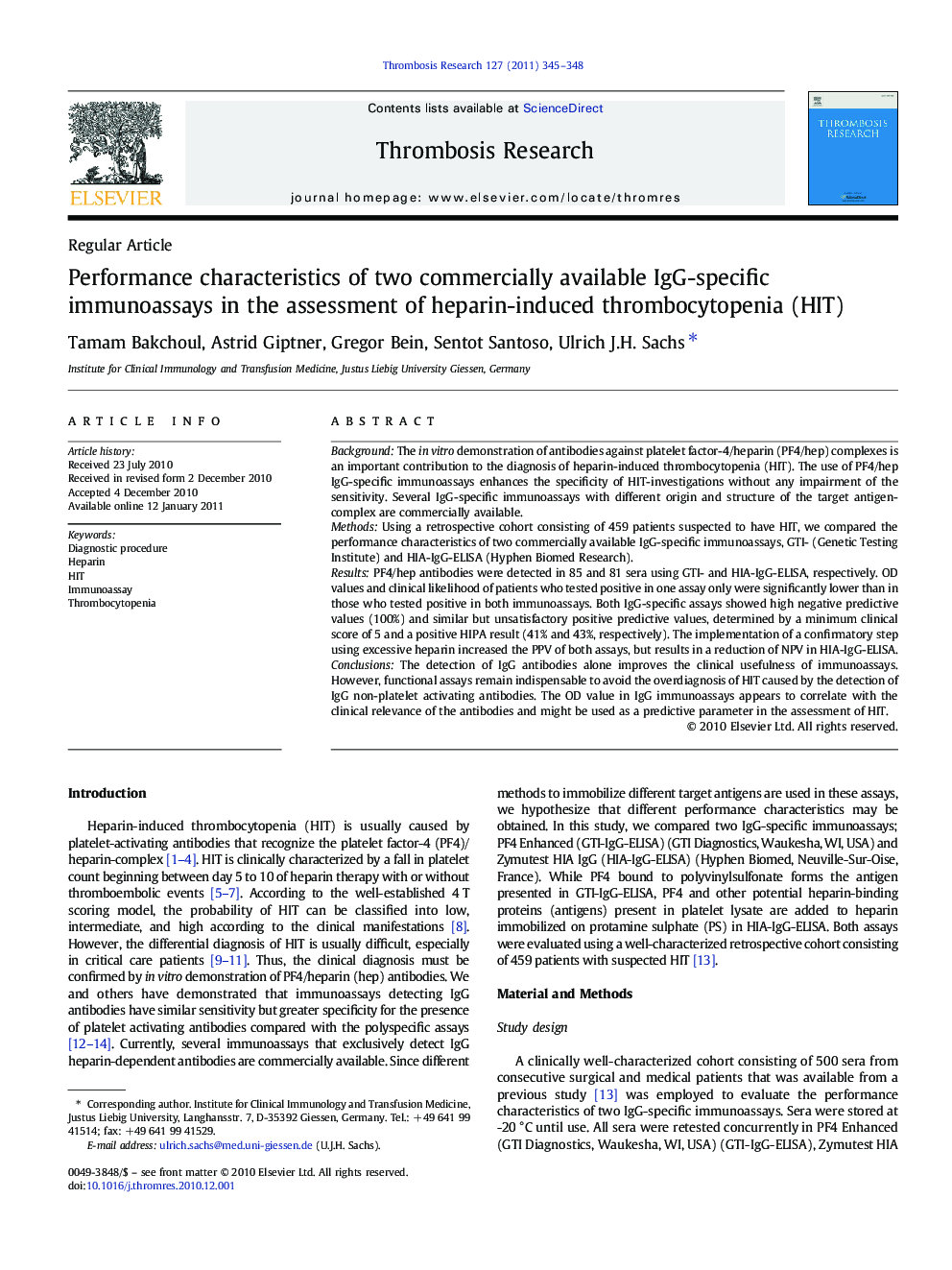| Article ID | Journal | Published Year | Pages | File Type |
|---|---|---|---|---|
| 3027630 | Thrombosis Research | 2011 | 4 Pages |
BackgroundThe in vitro demonstration of antibodies against platelet factor-4/heparin (PF4/hep) complexes is an important contribution to the diagnosis of heparin-induced thrombocytopenia (HIT). The use of PF4/hep IgG-specific immunoassays enhances the specificity of HIT-investigations without any impairment of the sensitivity. Several IgG-specific immunoassays with different origin and structure of the target antigen-complex are commercially available.MethodsUsing a retrospective cohort consisting of 459 patients suspected to have HIT, we compared the performance characteristics of two commercially available IgG-specific immunoassays, GTI- (Genetic Testing Institute) and HIA-IgG-ELISA (Hyphen Biomed Research).ResultsPF4/hep antibodies were detected in 85 and 81 sera using GTI- and HIA-IgG-ELISA, respectively. OD values and clinical likelihood of patients who tested positive in one assay only were significantly lower than in those who tested positive in both immunoassays. Both IgG-specific assays showed high negative predictive values (100%) and similar but unsatisfactory positive predictive values, determined by a minimum clinical score of 5 and a positive HIPA result (41% and 43%, respectively). The implementation of a confirmatory step using excessive heparin increased the PPV of both assays, but results in a reduction of NPV in HIA-IgG-ELISA.ConclusionsThe detection of IgG antibodies alone improves the clinical usefulness of immunoassays. However, functional assays remain indispensable to avoid the overdiagnosis of HIT caused by the detection of IgG non-platelet activating antibodies. The OD value in IgG immunoassays appears to correlate with the clinical relevance of the antibodies and might be used as a predictive parameter in the assessment of HIT.
